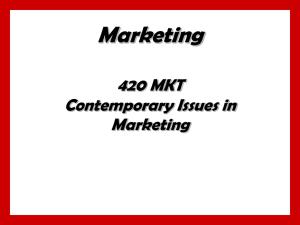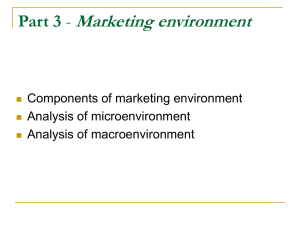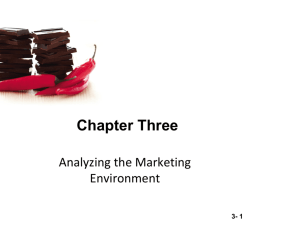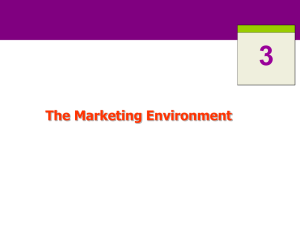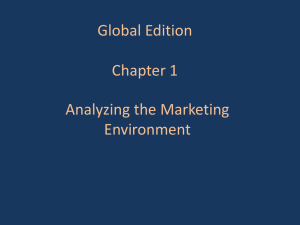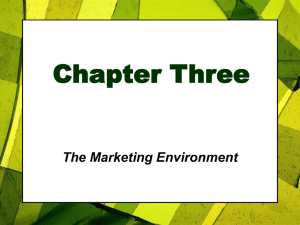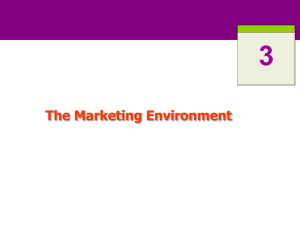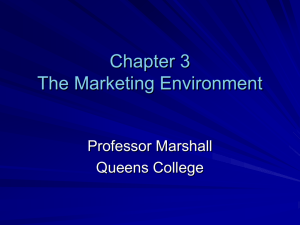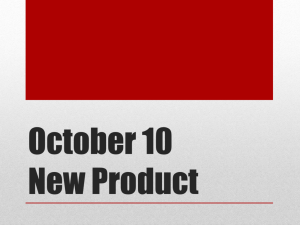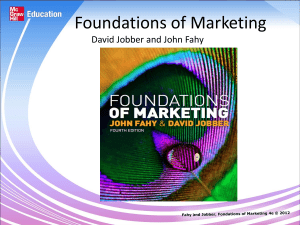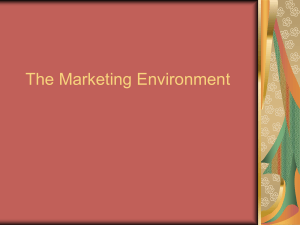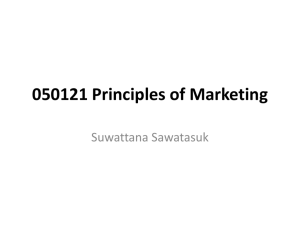Analyzing the Marketing Environment part 1
advertisement
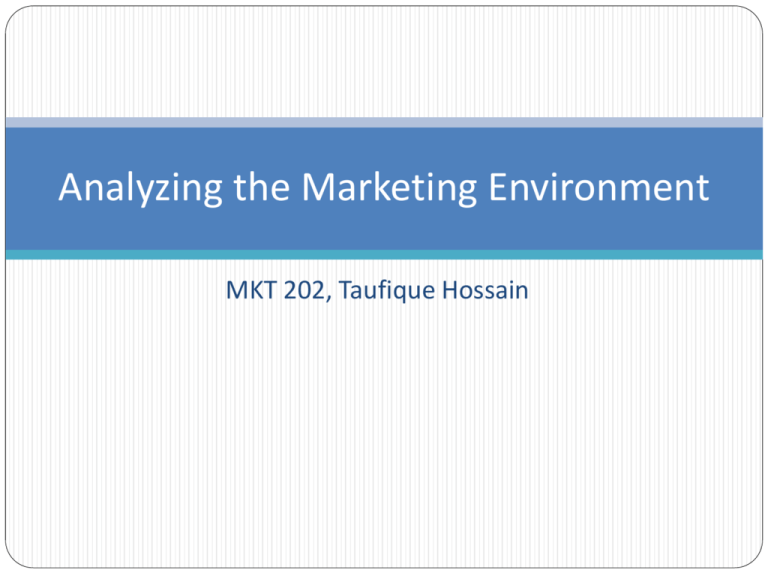
Analyzing the Marketing Environment MKT 202, Taufique Hossain The Marketing Environment Marketing Environment: The actors and forces outside marketing that affect marketing management’s ability to build and maintain successful relationships with target customers Microenvironment Forces close to the company that affect its ability to serve its customers. Macroenvironment Larger societal forces that affect the microenvironment. The Company’s Microenvironment Actors in the Microenvironment The Company’s Microenvironment The Company Top management Finance R&D Purchasing Operations Accounting The Company’s Microenvironment Suppliers Provide the resources to produce goods and services Treated as partners to provide customer value The Company’s Microenvironment Marketing Intermediaries Help the company to promote, sell and distribute its products to final buyers The Company’s Microenvironment Types of Marketing Intermediaries Resellers Physical distribution firms Marketing services agencies Financial intermediaries The Company’s Microenvironment Competitors Firms must gain strategic advantage by positioning their offerings against competitors’ offerings The Company’s Microenvironment Publics Any group that has an actual or potential interest in or impact on an organization’s ability to achieve its objectives Financial publics Media publics Government publics Citizen-action publics Local publics General public Internal publics The Company’s Macroenvironment The Company’s Macroenvironment Demographic Environment Demography is the study of human populations in terms of size, density, location, age, gender, race, occupation, and other statistics Demographic environment is important because it involves people, and people make up markets Demographic trends include age, family structure, geographic population shifts, educational characteristics, and population diversity The Company’s Macroenvironment Demographic Environment Changing age structure of the population Baby boomers include people born between 1946 and 1964 Generation X includes people born between 1965 and 1976 Millennials (gen Y or echo boomers) include those born between 1977 and 2000 Generational marketing is important in segmenting people by lifestyle of life state instead of age The Company’s Macroenvironment Demographic Environment More people are: Divorcing or separating Choosing not to marry Choosing to marry later Marrying without intending to have children Increased number of working women Stay-at-home dads The Company’s Macroenvironment Bangladesh Overview 163 million people (highest population density in the world, over 1000/sq. km) Rural 72%, Urban 21%, Semi-urban 7% About 57% of population is below 25 years of age High population growth rate-1.57% Mostly Muslim, with about 10% from other religions Literacy rate 47.9%, 15+ year old literacy rate increased 12% in 10 years. Trend of nuclear families in urban areas. Urban areas more internet savvy however internet penetration is quite low.
